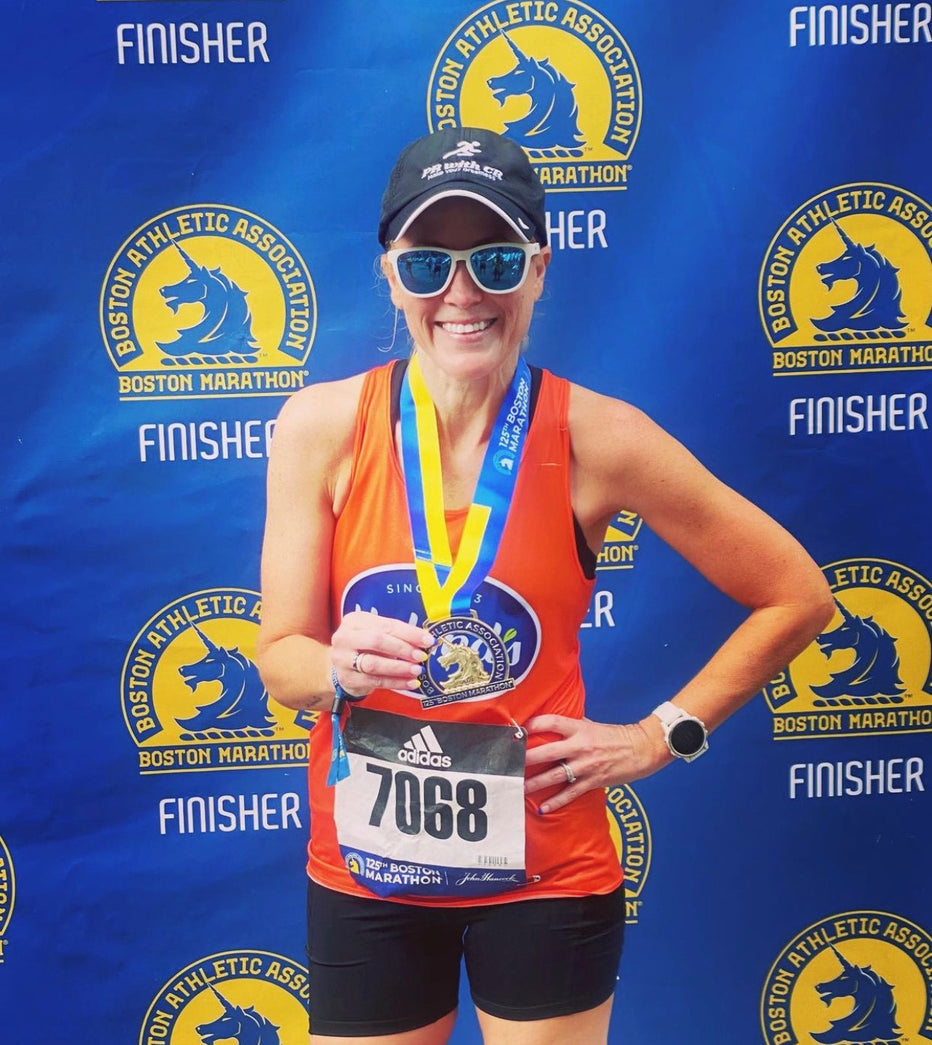My coach tells me all the time that success in training is all about the balance between stress and recovery. Too often we like to focus on that stress by pushing ourselves too hard, which can cause us to get injured, burnt out, or fall short of our goal on race day.
In the past, I definitely fell into the category of pushing too hard all of the time. I ran my easy runs way too fast, and that made my workouts way too slow. In fact, you could never really distinguish between easy days and workouts because every day looked the same. Pedal to the metal from start to finish and then trying to do the same thing the next day. Before I knew it, I suffered my first stress fracture by training in this manner.
Finding and working with a knowledgeable coach made all the difference. The first thing he told me was that I needed to slow down on my easy days. Whereas I used to run an 8-minute mile or faster on a daily basis, I started running 9- or 10-minute miles on easy runs. By allowing time for proper recovery, I found myself much stronger and fresher for workout days, so I could push those paces way faster than I ever had before.
The Basics of Recovery
-
Slow Down on Easy Days
For me, recovery during a training cycle is all about slowing down. I have actually gotten out of the habit of checking my watch on light days, and I have learned to run by feel and know that it should feel very, very easy. Doing this allows me to hit the specific paces that I’m supposed to hit on my workout days, too. And hitting those specific paces leaves me ready and confident when I toe the line on race day, knowing that I have practiced that goal pace repeatedly with success.
-
Take Breaks between Training Cycles
I stick to mostly easy running with very low-intensity workouts when I am in maintenance mode. I have found through experience, (meaning I learned the hard way with several injuries) that I cannot train at a high level all year long. And in between training cycles, I give myself a break, usually around 10 days of no running, to allow my body to heal and reset.
-
Sleep!
Recovery for me also means that I need to focus on sleep when I am in my heaviest training load. It's hard to train at your best when you are not resting, and sleep is when our body repairs.
-
Get enough Fuel
Make sure you are eating enough calories to fuel your workouts. And fueling properly during your long runs, too! I also add Bioplasma Sport powder to stimulate the healing process.
-
Mindset is Everything
Having a positive mindset works wonders. It helps you know when to train hard, know when to recover and overall be happy with where you are. Your recovery is going to look different than someone else’s. Don’t ever compare it, you are unique.
In short, I have come to learn how important the recovery process is in that "stress + recovery" formula. Thankfully, I have a coach that reminds me all the time about the importance of this balance, so now I am able to bounce back from the setbacks rather quickly and resume a high level of training. By more carefully balancing my body’s needs, I have become a better, faster runner!
By Randi West, Hyland's Powered Ambassador
